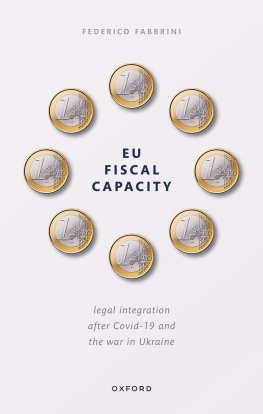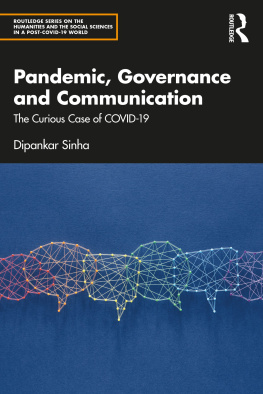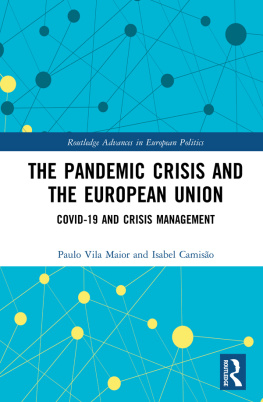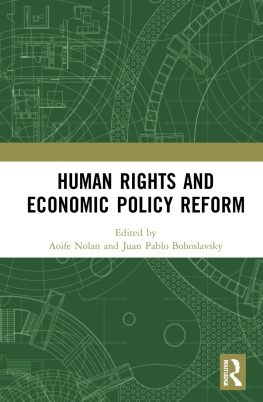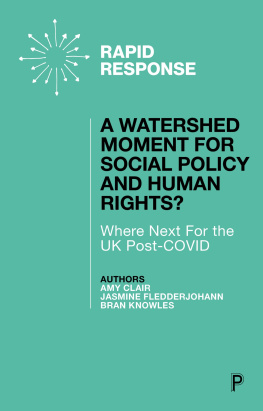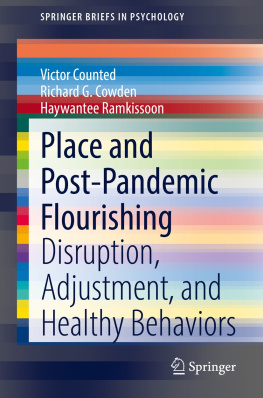Comparing and Contrasting the Impact of the COVID-19 Pandemic in the European Union
Comparing and Contrasting the Impact of the COVID-19 Pandemic in the European Union challenges the use of uncontextualised comparisons of COVID-19 cases and deaths in member states during the period when Europe was the epicentre of the pandemic. This timely study looks behind the headlines and the statistics to demonstrate the value for knowledge exchange and policy learning of comparisons that are founded on an in-depth understanding of key socio-demographic and public health indicators within their policy settings. The book adopts innovative, integrated, multi-disciplinary international perspectives to track and assess a fast-moving topical subject in an accessible format. It offers a template for analysing policy responses to the COVID-19 pandemic and for using evidence-based comparisons to inform and support policy development.
Linda Hantrais FAcSS is Emeritus Professor of European Social Policy at Loughborough University, UK, and a Visiting Professor at the London School of Economics and Political Science. Her research interests span international comparative research theory, methods, management and practice, with particular reference to public policy and institutional structures in the European Union, and the relationship between socio-demographic trends and social policy.
Marie-Thrse Letablier is Senior Research Fellow at the Centre National de la Recherche Scientifique (CNRS), and Emeritus Senior Research Fellow at the Centre dEconomie de la Sorbonne-UMR 8174, Universit Paris 1 Panthon-Sorbonne. Her research focusses on family policy, intergenerational relations and the workfamily relationship in France, from an international comparative perspective.
Routledge Studies in Political Sociology
Agonistic Articulations in the Creative City
On New Actors and Activism in Berlins Cultural Politics
Friederike Landau
Talking Collective Action
A Sequential Analysis of Strategic Planning in Anti-Nuclear Groups
Ole Ptz
Brains, Media and Politics
Generating Neoliberal Subjects
Rodolfo Leyva
The New Demagogues
Religion, Masculinity and the Populist Epoch
Joshua Roose
The Political Attitudes of Divided European Citizens
Public Opinion and Social Inequalities in Comparative and Relational Perspective
Christian Lahusen
The Contentious Politics of Expertise
Experts, Activism and Grassroots Environmentalism
Riccardo Emilio Chesta
Comparing and Contrasting the Impact of the COVID-19 Pandemic in the European Union
Linda Hantrais and Marie-Thrse Letablier
For a full list of titles in this series, please visit: https://www.routledge.com/sociology/series/RSPS
First published 2021
by Routledge
2 Park Square, Milton Park, Abingdon, Oxon OX14 4RN
and by Routledge
52 Vanderbilt Avenue, New York, NY 10017
Routledge is an imprint of the Taylor & Francis Group, an informa business
2021 Linda Hantrais and Marie-Thrse Letablier
The right of Linda Hantrais and Marie-Thrse Letablier to be identified as authors of this work has been asserted by them in accordance with sections 77 and 78 of the Copyright, Designs and Patents Act 1988.
All rights reserved. No part of this book may be reprinted or reproduced or utilised in any form or by any electronic, mechanical, or other means, now known or hereafter invented, including photocopying and recording, or in any information storage or retrieval system, without permission in writing from the publishers.
Trademark notice: Product or corporate names may be trademarks or registered trademarks, and are used only for identification and explanation without intent to infringe.
British Library Cataloguing-in-Publication Data
A catalogue record for this book is available from the British Library
Library of Congress Cataloging-in-Publication Data
A catalog record has been requested for this book
ISBN: 978-0-367-69172-1 (hbk)
ISBN: 978-1-003-14071-9 (ebk)
Typeset in Times New Roman
by codeMantra
Linda Hantrais is a Fellow of the UK Academy of Social Sciences, Emeritus Professor of European Social Policy at Loughborough University, UK, and a Visiting Professor at the London School of Economics and Political Science. Her research interests span international comparative research theory, methods, management and practice, with particular reference to public policy and institutional structures in the European Union, and the relationship between socio-demographic trends and social policy. She has coordinated several European research projects on these topics. Her publications include Social Policy in the European Union (2007), International Comparative Research: Theory, Methods and Practice (2009) and What Brexit Means for EU and UK Social Policy (2019).
Marie-Thrse Letablier is Senior Research Fellow, Centre National de la Recherche Scientifique (CNRS), and Emeritus Senior Research Fellow, Centre dEconomie de la Sorbonne-UMR 8174, Universit Paris 1 Panthon-Sorbonne. She was formerly a research associate at the Institut national dtudes dmographiques (Ined), Paris, and is currently a member of the Haut Conseil de la Famille, de lEnfance et de lAge. She has participated in several European research projects and networks, and she has acted as a policy adviser for research programmes in Japan and South Korea. Her research interests encompass intergenerational relations, family, childcare, familywork reconciliation and gender equality policies. She has published widely on these topics with a particular focus on family solidarities in France and Europe.
On 13 March 2020, the World Health Organisation (WHO, 2020d) officially recognised Europe as the epicentre of the COVID-19 pandemic. The media and politicians used information about absolute numbers of cases and deaths from the virus in European Union (EU) member states to construct league tables and to identify best policy practice for curbing the spread and severity of the pandemic. In combination, under-reporting, under-diagnosis and missing cases were known to create serious limitations for statisticians and data users, thereby undermining the value of comparisons made without reference to their sources or to the diverse socio-demographic, economic and political contexts within Europe (Hantrais, 2020b).
The starting point for this book was the decision to challenge the inappropriate and misleading use of comparisons of the impact of the pandemic in EU member states. The chapters look behind the headlines and statistics to demonstrate the value for knowledge exchange and policy learning of comparisons of COVID-19 cases and deaths founded on an in-depth understanding of key socio-demographic and public health indicators within their policy settings. Using evidence-based comparisons, the authors adopt multi-disciplinary international perspectives to track the progress of the pandemic across the EU and to assess the strengths and weaknesses of the policymaking process.
Finding the right distance for comparisons
According to the principle of variable distance (



